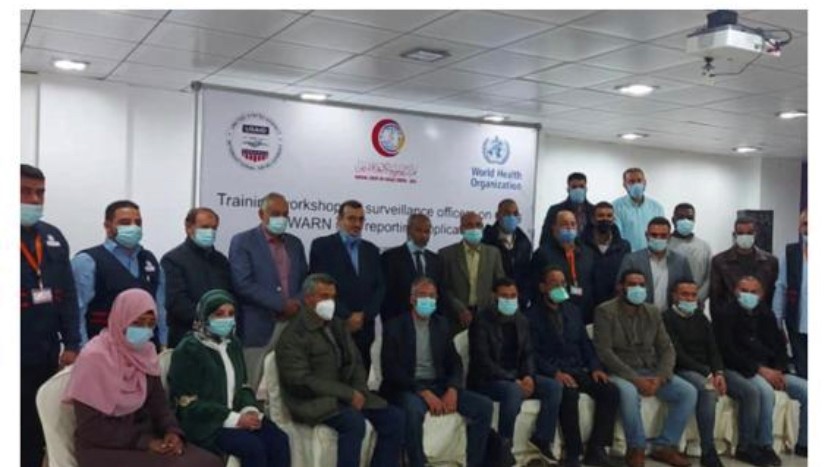 Libyan surveillance officers started the new year by activating a new WHO electronic platform that will help them report surveillance data as part of the country’s early warning and alert response network (EWARN) for COVID-19 and other events of public health concern.
Libyan surveillance officers started the new year by activating a new WHO electronic platform that will help them report surveillance data as part of the country’s early warning and alert response network (EWARN) for COVID-19 and other events of public health concern.
EWARN is the only functioning surveillance system in Libya. It is a model real-time surveillance system used for the timely detection and verification of potential disease outbreaks caused by emerging and epidemic-prone diseases. However, as a result of renewed clashes in the country along with movement restrictions imposed due to the COVID-19 situation, EWARN implementation faced setbacks that slowed implementation.
An urgent request for technical support was received from the national centre for disease control (NCDC) to strengthen Libya’s EWARN system, which resulted in a WHO task force being established to provide a suitable solution in collaboration with NCDC using different approaches. The new electronic system will improve the timeliness and completeness of reporting and response, which was customized to address the country’s priority epidemic-prone diseases and events, reporting structure, and alert response and threshold. Several features were included in the system to ensure validation and verification of reporting. A weekly bulletin can be generated automatically by the new electronic system to save time and effort.
The launch of the system was accompanied in September 2020 by a training of trainers workshop organized for national surveillance staff on how to use the different features of the web-based and mobile-based applications that access the platform. Cascade training was then implemented over 4 consecutive sessions in December 2020 in which 87 surveillance officers were trained from all over Libya.
The upgraded system is now up and running and Libya produced the first automated weekly bulletin in January 2021.
In the meantime, NCDC is planning to expand EWARN to include more sentinel sites to ensure early detection and rapid response to public health alerts and outbreaks. A phasic plan was developed to expand EWARN in a systemic manner by including additional governmental health facilities, the private sectors and health facilities run by national and international nongovernmental organizations, as well as other partners.
WHO will continue to provide technical and financial support for the implementation, monitoring and evaluation of EWARN in Libya.
Related links
WHO supports countries transition from EWARN to routine surveillance
Updating the EWARN evaluation protocol for the Region
New EWARN Handbook to enhance quality of epidemiological surveillance in humanitarian emergencies


